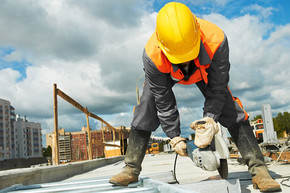Construction workers work hard, and oftentimes on the job injury can come with the territory. Employers must be held accountable and protect their workers, but sometimes injuries can be vague and it can be hard to decide who is at fault. As a construction worker, you need to understand your rights, be sure to protect your income, and know when to find back up. Your employer may not be making the best decisions that keep your needs in mind. Here are a three common construction injury scenarios that you should make sure you are being protected from.
1. When Injury is Hard to Define
If you are unsure of the extent of your injuries or accident, or if they are long lasting, it might be time to consult a construction accident lawyer. Bringing in someone that knows this area can assess the situation and make sure that your employer is looking out for your best interests. Personal injury can be tricky. It is hard to say who is at fault sometimes, and to understand the severity of an injury if it is not documented properly. Your work might not necessarily be the bad guy, but are going to error on their side if the injury is hard to define or explain. Bringing in a expert that has seen personal injury cases before and can assess the situation as a third party is crucial in this type of injury.
2. If you Aren’t Sure you Can Perform the Same Work
If you are injured on the job and your work pays your medical bills and leave, that is a good step. If you might have lasting implications that will make it hard or impossible for you to go back to work at the level you were at before the injury, this can directly affect your future earnings. For sustained injury, this needs to be looked at carefully by a lawyer to make sure you are covered in the long run. Short term care and compensation is a start, but if you will need further coverage and help with rehabilitation or job placement, your employer might be reluctant to help if you give them an out.
3. If your Employer is Non-Communicative After an Injury
If you are injured on the job and sent home, you might expect follow up HR documents and maybe questioning to make sure everything is in compliance and that you are covered. If you go home and hear nothing, you should contact a lawyer to help make sure a paper trail is started immediately. The worst mistake is to not follow up with your employer. This can give them grounds down the road to doubt the severity of your injury and lessen your claim to compensation. If your work doesn’t understand the full story or the severity of injury, this needs to be brought to their attention and dealt with under the guidance of an attorney.
Many times, it isn’t that your employer is trying to cheat you, they simply might not know any better. Having a lawyer involved can help educate your employer, safeguard them, and make sure you are protected and all of your rights are fully covered. Making sure your income and health are a priority not only to you, but to your employer is important. If you aren’t feeling protected or that your rights might be violated, make sure to involve a lawyer. Being in a dangerous field should have safeguards to protect workers, but sometimes cases can be thrown out and will significantly detriment your lifestyle.
This post comes from team at Carter Capner in Brisbane. To know more about personal injury law, head to their website and read their blog posts which cover all aspects of personal injury and the legalities of it.

